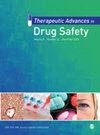Olanzapine for the prevention of postoperative nausea and vomiting after gynecologic laparoscopic surgery: a randomized controlled trial
IF 3.4
3区 医学
Q2 PHARMACOLOGY & PHARMACY
引用次数: 0
Abstract
Purpose:This study was designed to investigate the prophylactic effect of oral olanzapine in postoperative nausea and vomiting after gynecologic laparoscopic surgery.Methods:ASA I–II, aged 18–75 years, planned to undergo gynecologic laparoscopic surgery with general anesthesia in adult female patients. Using the randomized numbers table, the patients were placed in two groups. Oral olanzapine 5 mg or placebo was given 1 h before anesthesia. All patients received standard antiemetic prophylaxis with dexamethasone and granisetron. The primary outcome was nausea and/or vomiting in the 24 h after the postoperative.Results:A total of 250 patients were randomized, and 241 were analyzed. The primary outcome occurred in 10 of 120 patients (8.3%) in the olanzapine group and 23 of 121 patients (19.2%) in the placebo group ( p = 0.014). According to Kaplan–Meier analysis, the probabilities of nausea and/or vomiting in the 24 h after the postoperative in the olanzapine group were lower than in the placebo group (log-rank p = 0.014). In a multivariate Cox analysis, the variables of use of olanzapine [hazard ratio (HR): 0.35, 95% confidence interval (CI): 0.16–0.79; p = 0.012] and use of vasoactive drugs (HR: 2.48, 95% CI: 1.07–5.75; p = 0.034) were independently associated with nausea and/or vomiting in the 24 h after the postoperative.Conclusion:Our data suggest that olanzapine relative to placebo decreased the risk of nausea and/or vomiting in the 24 h after gynecologic laparoscopic surgery.Trial registration:The trial was registered prior to patient enrollment at The Chinese Clinical Trial Registry ( https://www.chictr.org.cn/showproj.html?proj=166900 , link to registry page, Principal investigator: Nanjin Chen, Date of registration: 25 April 2022).预防妇科腹腔镜手术后恶心和呕吐的奥氮平:随机对照试验
目的:本研究旨在探讨口服奥氮平对妇科腹腔镜手术后恶心和呕吐的预防效果。方法:ASAⅠ-Ⅱ级,年龄18-75岁,计划接受妇科腹腔镜手术并进行全身麻醉的成年女性患者。采用随机数字表法,将患者分为两组。麻醉前 1 小时口服 5 毫克奥氮平或安慰剂。所有患者均接受地塞米松和格拉司琼的标准止吐预防治疗。结果:共有250名患者接受了随机治疗,其中241人接受了分析。奥氮平组120例患者中有10例(8.3%)出现主要结果,安慰剂组121例患者中有23例(19.2%)出现主要结果(P = 0.014)。根据 Kaplan-Meier 分析,奥氮平组术后 24 小时内出现恶心和/或呕吐的概率低于安慰剂组(log-rank p = 0.014)。在多变量 Cox 分析中,使用奥氮平[危险比 (HR):0.35,95% 置信区间 (CI):0.16-0.79;P = 0.012]和使用血管活性药物(HR:2.48,95% CI:1.07-5.75;P = 0.034)与术后 24 小时内恶心和/或呕吐独立相关。结论:我们的数据表明,相对于安慰剂,奥氮平可降低妇科腹腔镜手术后24小时内恶心和/或呕吐的风险。试验注册:该试验在患者入组前已在中国临床试验注册中心(https://www.chictr.org.cn/showproj.html?proj=166900 ,链接至注册中心页面,主要研究者:陈南瑾,注册日期:2012-2013)注册:注册日期:2022年4月25日)。
本文章由计算机程序翻译,如有差异,请以英文原文为准。
求助全文
约1分钟内获得全文
求助全文
来源期刊

Therapeutic Advances in Drug Safety
Medicine-Pharmacology (medical)
CiteScore
6.70
自引率
4.50%
发文量
31
审稿时长
9 weeks
期刊介绍:
Therapeutic Advances in Drug Safety delivers the highest quality peer-reviewed articles, reviews, and scholarly comment on pioneering efforts and innovative studies pertaining to the safe use of drugs in patients.
The journal has a strong clinical and pharmacological focus and is aimed at clinicians and researchers in drug safety, providing a forum in print and online for publishing the highest quality articles in this area. The editors welcome articles of current interest on research across all areas of drug safety, including therapeutic drug monitoring, pharmacoepidemiology, adverse drug reactions, drug interactions, pharmacokinetics, pharmacovigilance, medication/prescribing errors, risk management, ethics and regulation.
 求助内容:
求助内容: 应助结果提醒方式:
应助结果提醒方式:


